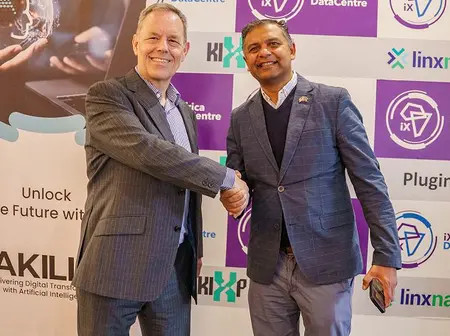Kenya’s banking sector is on the verge of a technological shift that could redefine competition, profitability, and customer engagement, according to new research from Akili AI.
In a survey of senior management and Board members from the country’s leading banks, over 80% agreed that generative AI will be transformative for the sector.
However, adoption rates are low by global standards, with just 20% of banks saying they are “prepared” or “fully prepared” for this transition.
This highlights a challenge and an opportunity for the banking sector, as new AI-native digital banks are entering the market with dramatically lower cost structures. According to Akili AI and iXAfrica Data Centres, the cost of customer acquisition for a fully digital bank can be less than one-third that of a traditional bank, while customer management costs can be under one-fifth. The figures point to both a compelling opportunity for new early adopters and an opportunity for established players to build on their existing strength and customer base in the market to roll out new services at high speed.
Beyond banking, AI’s potential in Kenya spans healthcare, education, government, and retail. But Akili AI highlights one immediate and economy-wide impact: the ability to reduce the cost of holding and managing cash, which could boost liquidity and accelerate economic activity.
At an event hosted today at iXAfrica’s headquarters in Nairobi, Akili AI and iXAfrica demonstrated next-generation AI applications for financial services, including:
“The AI revolution in banking is not a distant future; it’s happening now,” said Simon Bransfield-Garth, CEO of Akili AI. “Kenyan banks have the opportunity to embrace AI to reduce costs, reach more customers, and innovate, in a market that is likely to become increasingly competitive with new digital entrants, including AI-native challengers.”
Snehar Shah, CEO of iXAfrica, added: “We have the infrastructure, talent, and market readiness to lead in AI adoption in Kenya, but AI is moving at unprecedented speed and action is needed by companies today, not tomorrow.”

Leave a Reply